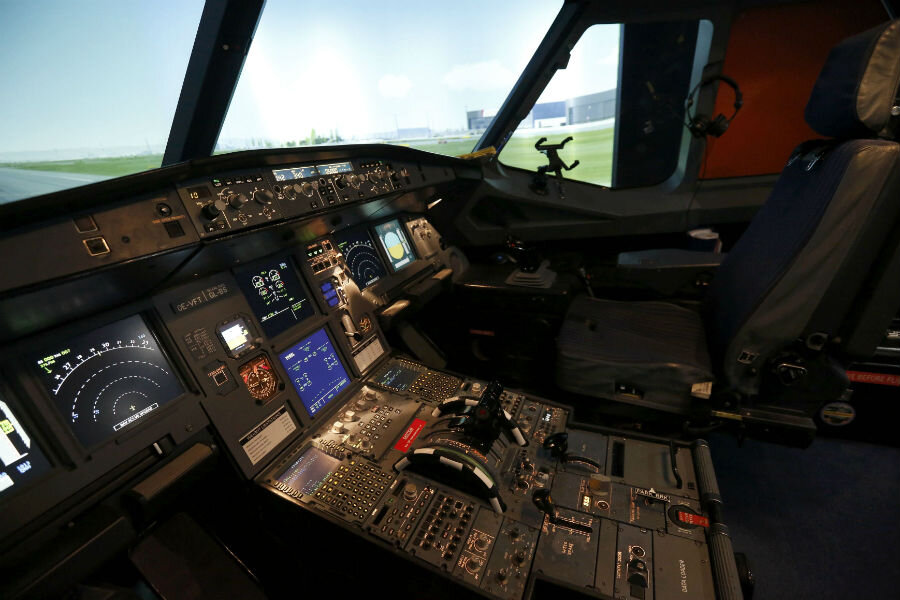Do pilots rely too much on automated flying? DOT says yes.
Loading...
Aviation watchdogs are pumping the airbrakes on the use of autopilot after finding that relying on the technology may make for unprepared airline pilots. That's according to an audit from the Inspector General of the US Department of Transportation (DOT), which calls for the Federal Aviation Administration (FAA) to ensure pilots are ready to fly manually should the need arise.
While the transportation authority acknowledges automation technology has made for safer skies, the agency cautions that it can contribute to "diminished manual flying skills" that leave pilots ill-prepared for the unexpected. The report continues:
While airlines have long used automation safely to improve efficiency and reduce pilot workload, several recent accidents, including the July 2013 crash of Asiana Airlines flight 214, have shown that pilots who typically fly with automation can make errors when confronted with an unexpected event or transitioning to manual flying. As a result, reliance on automation is a growing concern among industry experts, who have also questioned whether pilots are provided enough training and experience to maintain manual flying proficiency.
As such, DOT is suggesting the FAA provide guidelines to air carriers for monitoring and evaluating pilot performance, and to ensure manual training is provided. Right now, according to DOT, limited monitoring and manual training is in place.
The FAA, which responded to a draft of the report, said that the agency "shares the [Inspector General's] concerns about an over-reliance on automation and the importance of training pilots to handle unexpected events and manually fly an aircraft." The agency agreed to move forward with the recommendation to help airlines monitor pilots but disagreed that pilot training was insufficient.
The Transportation Department referenced studies that have found pilots are prone to overestimating their manual flying skills: "For example, the Flight Safety Foundation’s 2010 study evaluated the manual flying skills of 30 experienced US commercial airline pilots. While 80 percent of the pilots reported that they typically hand fly the aircraft below 10,000 feet, the pilots’ aggregate scores for manual flying maneuvers fell below FAA’s standards for these pilots."
The agency cautions that as use of automation technology rises, pilots will have less and less opportunity to practice manual flying skills. Already, the FAA estimates that pilots rely on automation during flight 90 percent of the time.
Still, it is important to remember that flying has only gotten safer. As The Christian Science Monitor previously reported, 2015 was a safer year for flying than the preceding 12 months, making it one of the safest years for air travel ever.








